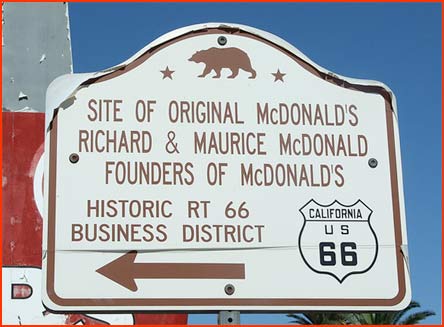
Last time, Childhood Obesity News mentioned cross-heritability, a human trait that results in the tendency of people who shed one addiction, only to pick up another one. Apparently, addiction has more to do with the individual than with the substance or activity itself. In a sense, all addictions are interchangeable.
A lively website called The Fix: Addiction and Recovery, Straight Up contains a plethora of fascinating articles with such titles as “Why Alcoholics Crave Sweets.” Written by Kristen McGuiness, it is full of case histories, like that of a teacher who tells the reporter her sugar problems began the minute she got sober. About her most recent attendance at Alcoholics Anonymous, she says:
Last night, I left a meeting early and went and bought a Danish and a donut and a cinnamon roll and a brownie and Skittles and an ice cream bar.
The journalist also quotes Phil Werdell, who trains other professionals in the methodologies of recovery from food dependency. He reminds us that on a biochemical level, addiction to food works just like addiction to alcohol or hard drugs:
The PET and CAT scans of food addicts look almost identical to that of alcoholics and drug addicts, showing that sugar creates a physical addiction. In addition, sugar addicts carry the same D2 dopamine receptor, the gene that identifies addiction, as alcoholics and addicts… When we talk to recovering alcoholics and addicts who are finding their way to Overeaters Anonymous, we find a very common refrain: I started using sugar or food just like I was using alcohol.
Like many others, Werdell is concerned about the implications for childhood obesity. There are certain rules in place to keep liquor and cigarettes out of the hands of minors. On the whole, American society accepts the necessity and validity of those laws. But when it comes to food, the idea of prohibiting some kinds of it to some consumers just outrages people. They don’t even care what age group is involved, nobody’s rights should be so trampled.
One reason why people reject the idea that anyone can get hooked on an edible substance is the innate “My drug is better than your drug” philosophy,” which may be just a fancy form of denial. Another reason why people don’t want to believe in food addiction is that they don’t realize or don’t want to know the extent to which their groceries are adulterated. Werdell says:
Most of the food we are sold is contaminated with foods that are highly addictive, and this is why many people become sugar addicts at much younger ages than they become drug or alcohol users.
Then, recovered food addict Mary Foushi is quoted:
Alcoholism is simply another form of sugar and grain: it is just being drank as opposed to eaten. People we work with say that putting down the alcohol is nothing compared to putting down the food, and the dangers of sugar addiction can be just as bad if not far worse: obesity, diabetes, some forms of cancer, high blood pressure, degeneration of bones and joints.
Earlier this year, news came from Birmingham, England, of a 17-year-old girl whose health was in grave peril:
The factory worker collapsed at her job last week, suffering from anemia, inflamed veins and breathing difficulties. She was so deficient in essential vitamins and minerals that she was rushed to hospital to have them administered intravenously.
The problem? Since the age of two, Stacey Irvine had existed on a diet consisting almost exclusively of McDonald’s chicken nuggets. The headline writers called her a chicken nugget addict — and they weren’t the only ones. The reporter quoted a nutritionist, Dr. Carina Norris, who said this was the most extreme food addiction she’s seen in 10 years of practice.
Members of the public who commented about Coca-Cola addict Natasha Harris tended to tsk-tsk about what a shame it was, that she wasn’t helped by the people around her. But as too many friends and family members of addicts are aware, it’s never that easy. How many times has the following conversation taken place?
‘Hey, did you know you’re an alcoholic?’
‘Thanks for telling me. I’ll sign up for rehab right now.’
Zero times, that’s how many. Especially when other people in the environment are also carrying monkeys on their own backs. Childhood Obesity News has featured famous food addict Carrie Fisher. In Fisher’s novel Postcards from the Edge, the character Suzanne is working out at Gold’s Gym in Venice, CA, and reflecting on her heritage:
She had always eaten wrong. It was a tradition in her family. Dairy, red meat, salt, sugar, caffeine, and fried everything: American food. She knew what it did to you, but she couldn’t do without it for too long. Her diets lasted until about four thirty in the afternoon…
Your responses and feedback are welcome!
Source: “Why Alcoholics Crave Sweets,” The Fix, 08/03/11
Source: “Chicken Nugget ‘Addict’ in Peril,” The Fix, 01/30/12
Image by Tamsin Slater, used under its Creative Commons license.

 FAQs and Media Requests:
FAQs and Media Requests: 











